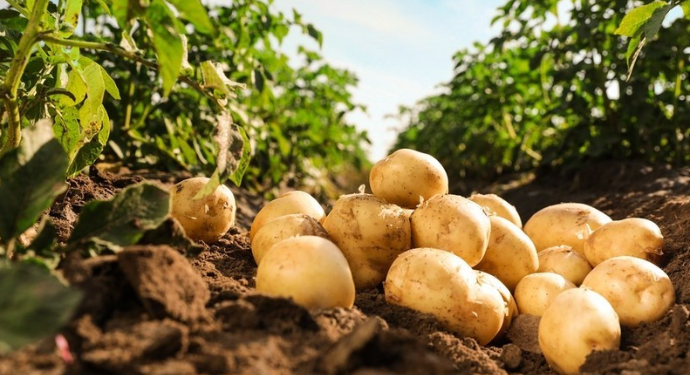In 2023, Azerbaijan faced significant challenges in its potato farming sector, with a notable decrease in both crop yields and economic returns. This article delves into the latest statistics and developments surrounding potato farming in Azerbaijan, shedding light on the factors contributing to this decline and its potential implications for the country’s agricultural landscape.
Azerbaijan’s Potato Harvest: A Statistical Overview
The year 2023 witnessed the cultivation of 32,665 thousand hectares of potato fields in Azerbaijan, resulting in a total harvest of 664,921.7 thousand tons of potatoes. While these figures may seem impressive at first glance, it is essential to analyze them in the context of previous years to understand the current situation fully.
Comparative Analysis with 2022
In 2022, during the same period from January to July, Azerbaijan cultivated potatoes on 34,762 hectares of land, yielding 676,984 tons of the crop. Comparatively, this year’s potato harvest represents a 1.8% decrease, equivalent to 12,063 tons less than the previous year. This decline in potato production is concerning and has raised questions about the factors behind this decrease.
Regional Potato Production
Within Azerbaijan, specific regions contributed significantly to the overall potato production. Notably, Jalilabad, Shamkir, and Pavilna districts stood out, producing 161,500 tons, 143,750 tons, and 136,055 tons of potatoes, respectively. These regions play a vital role in supplying potatoes to the local market and beyond.
Challenges Faced by Azerbaijani Potato Farmers
Several factors have contributed to the decrease in potato production and income in Azerbaijan:
- Climate Variability: Fluctuations in weather patterns, including irregular rainfall and temperature changes, can significantly impact potato cultivation. Unpredictable weather can lead to crop diseases and reduced yields.
- Pest Infestations: Pests and diseases, such as the Colorado potato beetle, pose a continuous threat to potato crops. Farmers struggle to manage these infestations effectively.
- Economic Factors: The fluctuating prices of agricultural inputs, including fertilizers and pesticides, can affect the profitability of potato farming. Rising costs can lead to reduced profits for farmers.
- Land Use Changes: The conversion of agricultural land for other purposes, such as urbanization or infrastructure development, can reduce the available land for potato cultivation.
Economic Implications
The decrease in potato production has economic implications for Azerbaijan. Potato farming is a significant source of income for many rural households, and any decline in yields can lead to financial challenges for farmers. The 12% decrease in income from potato farming is a cause for concern, as it may impact the livelihoods of those dependent on this sector.
Conclusion
The 2023 potato harvest in Azerbaijan has faced challenges, resulting in decreased yields and income for farmers. Factors such as climate variability, pest infestations, economic pressures, and land use changes have all contributed to this decline. It is essential for the government and stakeholders to address these issues to ensure the sustainability of the potato farming sector in Azerbaijan.
Future Actions
To mitigate the challenges faced by potato farmers in Azerbaijan, the following actions are recommended:
- Research and Development: Invest in research to develop potato varieties that are more resistant to pests and diseases and can thrive in diverse climate conditions.
- Agricultural Support: Provide farmers with access to affordable agricultural inputs, training, and resources to improve their productivity and profitability.
- Climate Resilience: Promote climate-smart farming practices that can help farmers adapt to changing weather patterns.
- Land Use Planning: Implement effective land use policies that balance urbanization and infrastructure development with the preservation of agricultural land.
- Market Access: Explore opportunities to expand the export market for Azerbaijani potatoes, thereby increasing income potential for farmers.
By addressing these challenges and taking proactive measures, Azerbaijan can revitalize its potato farming sector, ensuring food security and economic stability for its rural communities.







